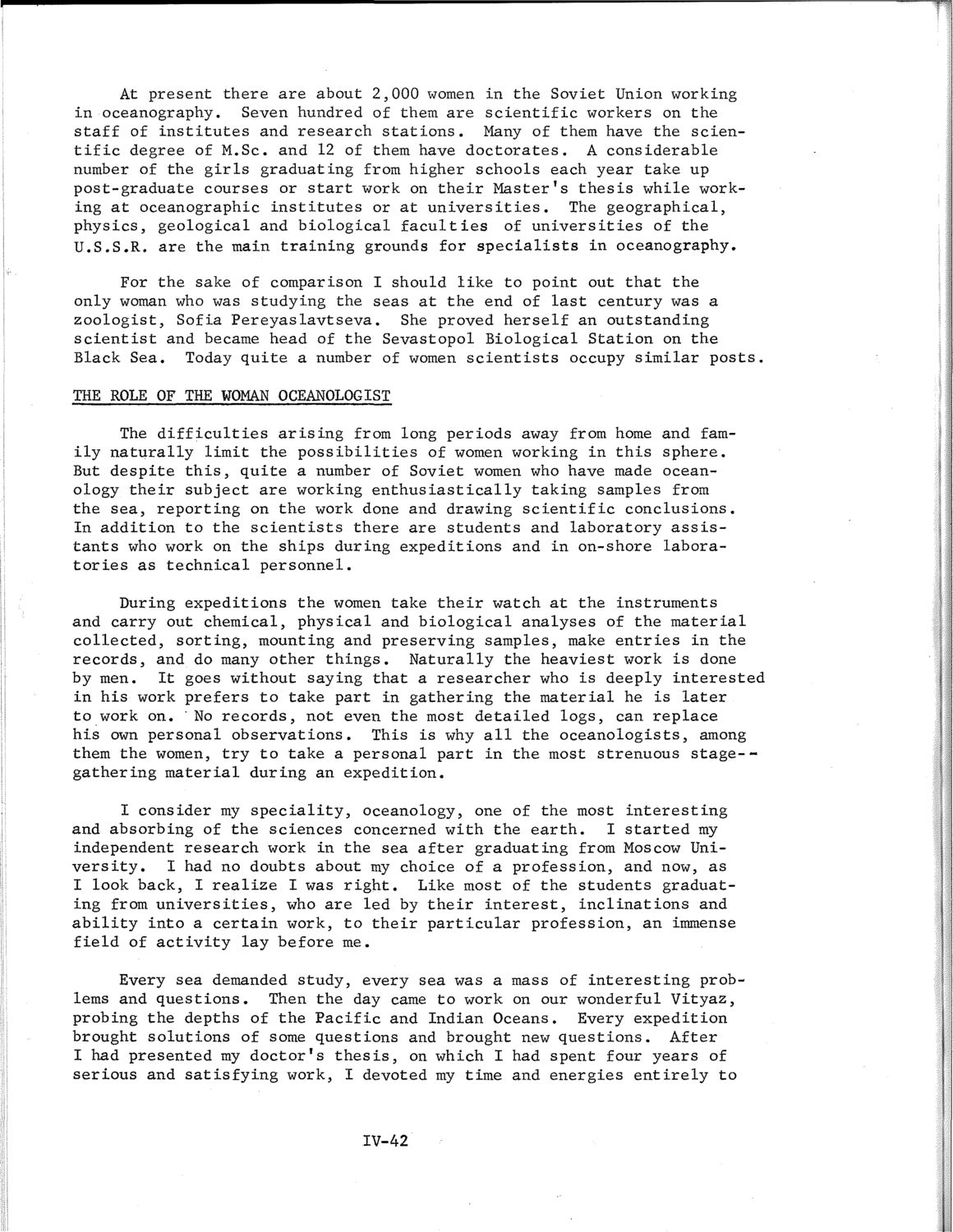| |
| |
Caption: SWE - Proceedings of the First International Conference of Women Engineers and Scientists
This is a reduced-resolution page image for fast online browsing.

EXTRACTED TEXT FROM PAGE:
At present there are about 2,000 women in the Soviet Union working in oceanography. Seven hundred of them are scientific workers on the staff of institutes and research stations. Many of them have the scientific degree of M.Sc. and 12 of them have doctorates. A considerable number of the girls graduating from higher schools each year take up post-graduate courses or start work on their Master's thesis while working at oceanographic institutes or at universities. The geographical, physics, geological and biological faculties of universities of the U.S.S.R. are the main training grounds for specialists in oceanography. For the sake of comparison I should like to point out that the only woman who was studying the seas at the end of last century was a zoologist, Sofia Pereyaslavtseva. She proved herself an outstanding scientist and became head of the Sevastopol Biological Station on the Black Sea. Today quite a number of women scientists occupy similar posts. THE ROLE OF THE WOMAN OCEAN0L0GIST The difficulties arising from long periods away from home and family naturally limit the possibilities of women working in this sphere. But despite this, quite a number of Soviet women who have made oceanology their subject are working enthusiastically taking samples from the sea, reporting on the work done and drawing scientific conclusions. In addition to the scientists there are students and laboratory assistants who work on the ships during expeditions and in on-shore laboratories as technical personnel. During expeditions the women take their watch at the instruments and carry out chemical, physical and biological analyses of the material collected, sorting, mounting and preserving samples, make entries in the records, and do many other things. Naturally the heaviest work is done by men. It goes without saying that a researcher who is deeply interested in his work prefers to take part in gathering the material he is later to work on. ' No records, not even the most detailed logs, can replace his own personal observations. This is why all the oceanologists, among them the women, try to take a personal part in the most strenuous stage-gathering material during an expedition. I consider my speciality, oceanology, one of the most interesting and absorbing of the sciences concerned with the earth. I started my independent research work in the sea after graduating from Moscow University. I had no doubts about my choice of a profession, and now, as I look back, I realize I was right. Like most of the students graduating from universities, who are led by their interest, inclinations and ability into a certain work, to their particular profession, an immense field of activity lay before me. Every sea demanded study, every sea was a mass of interesting problems and questions. Then the day came to work on our wonderful Vityaz, probing the depths of the Pacific and Indian Oceans. Every expedition brought solutions of some questions and brought new questions. After I had presented my doctor's thesis, on which I had spent four years of serious and satisfying work, I devoted my time and energies entirely to IV-42
| |